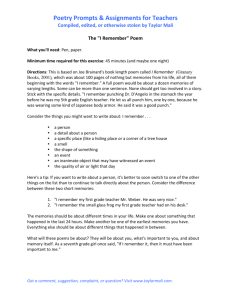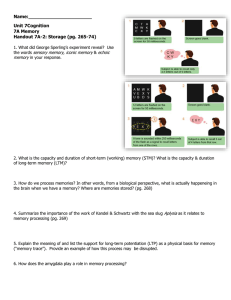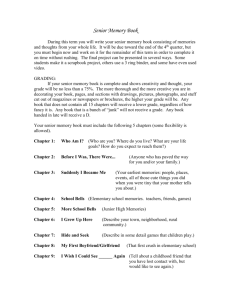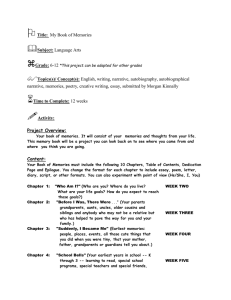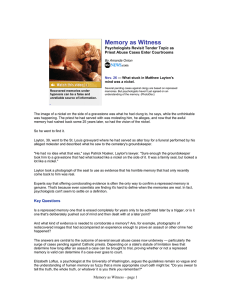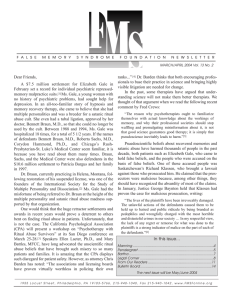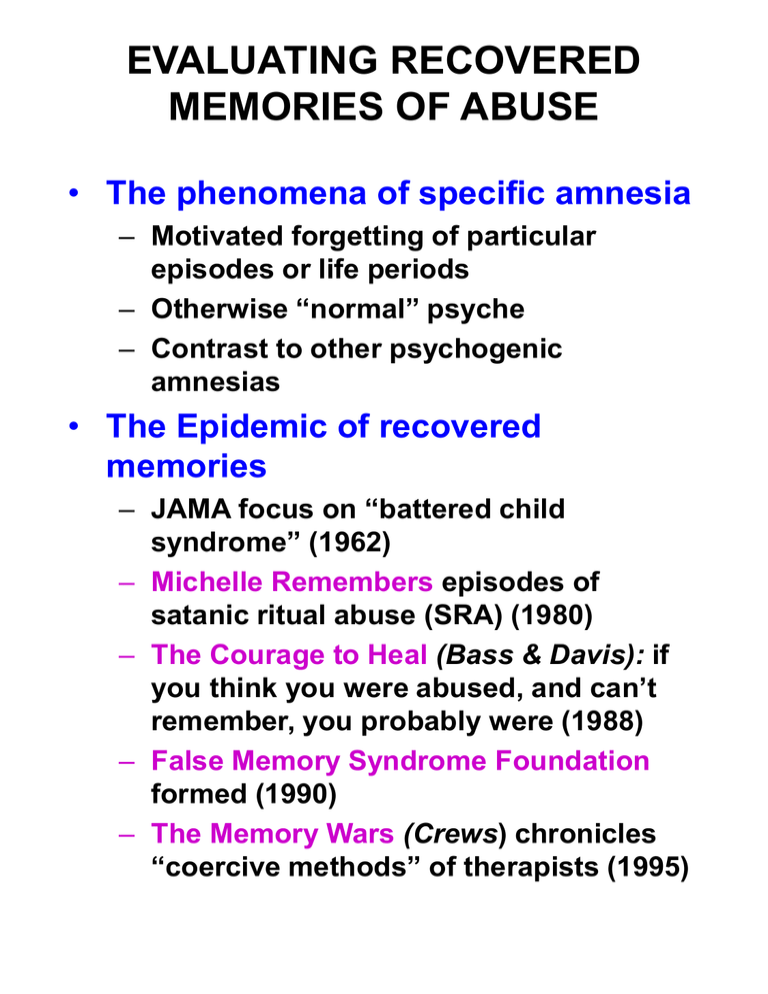
EVALUATING RECOVERED
MEMORIES OF ABUSE
• The phenomena of specific amnesia
– Motivated forgetting of particular
episodes or life periods
– Otherwise “normal” psyche
– Contrast to other psychogenic
amnesias
• The Epidemic of recovered
memories
– JAMA focus on “battered child
syndrome” (1962)
– Michelle Remembers episodes of
satanic ritual abuse (SRA) (1980)
– The Courage to Heal (Bass & Davis): if
you think you were abused, and can’t
remember, you probably were (1988)
– False Memory Syndrome Foundation
formed (1990)
– The Memory Wars (Crews) chronicles
“coercive methods” of therapists (1995)
• The Therapists’ case:
– Confirmed cases of “recovered”
memories (e.g., Ross Cheit’s camp days)
– Survey suggests at least some (10%) of
adult women have no recollection of
episodes of abuse (Williams, 1995)
– No evidence that “therapy alone” can
cause false memories of abuse
– Lab evidence of false memories aren’t
relevant
– Why should a patient falsely remember
such awful and stressful events?
• The Skeptics’ case:
– Confirmed cases of “false recoveries”
(e.g., Diane Halbrook’s cult memories)
– Single traumatic events are almost
always remembered, if not with perfect
accuracy (e.g., Chowchilla kidnapping)
– Childhood events can be forgotten
through normal mechanisms
• Lack of rehearsal
• “directed forgetting” and suppression
• Schematization
• Infantile amnesia
• State dependence and specificity
– Retrospective emotion may not be
accurate
– No evidence for “buildup of repression”
with chronic abuse
• Women with multiple admissions more
likely to remember at least one
(Williams, 1995)
• The Skeptics’ case (continued):
– In general, “memory” is malleable
– Specific methods used in therapy are
just what might bias memory
• Hypnosis and other aggressive methods
of therapy can produce confident false
memories
• Therapeutic techniques encourage and
reward “recovery” of memories
– In many cases of “recovered” memory,
there are reasons for skepticism:
• No “trail of psychopathology” prior to
therapy
• The recovered memories are often
implausible or bizarre (past lives, alien
abductions, CIA conspiracies)
• And often increase in wildness and
number as therapy progresses
• No credible evidence for ANY cases of
Satanic Ritual Abuse
• Often no corroborating evidence of
sexual abuse
– Growing number of retractors
• The costs of skepticism
– Compounds victims’ misery
– Inhibits legitimate claims of abuse
– Crimes may go unpunished
• The costs of false memories
– Broken families, broken lives
– Jail and vilification
– Misery for the “victims” and accused
The Paul Ingram story
• Accused by daughters,
admits to sexual abuse
• convicted and jailed 1989
• retracts in early 90’s
• parolled in 2003, now a
“registered sexual offender”


